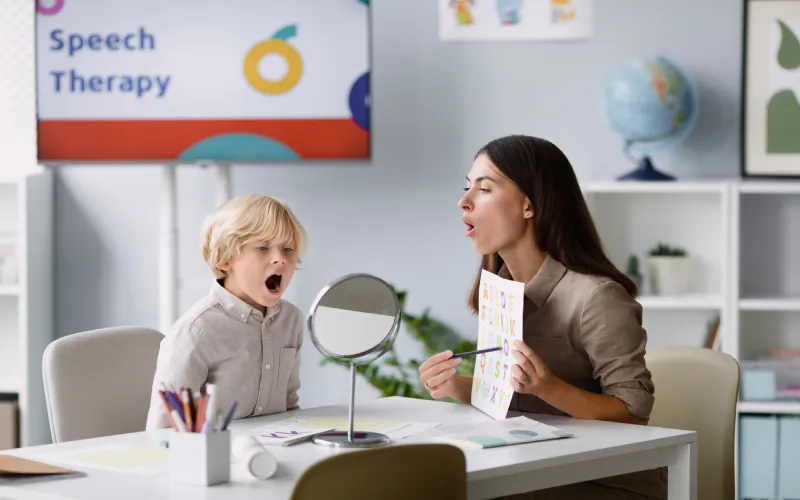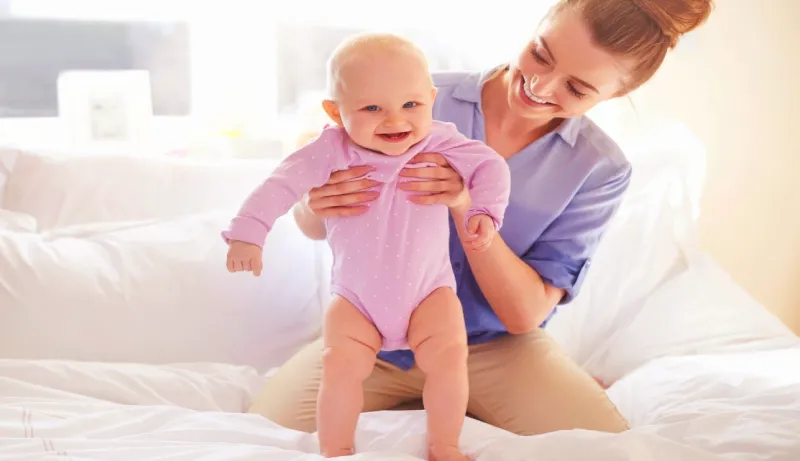Speech therapy is a vital resource for children with communication difficulties. It helps them develop essential language skills and improve their ability to express themselves effectively. One effective way to enhance speech therapy sessions is by incorporating interactive toys that promote speech and language development. In this guide, you will explore a variety of speech therapy toys that can assist children in their language journey.
Interactive Storytelling Toys
Interactive storytelling toys provide a fantastic opportunity for children to engage in language-rich activities. These toys often come with pre-recorded stories that children can listen to and interact with. Children actively participate in the narrative by pressing buttons or moving characters, which can help them with vocabulary expansion, sentence formation, and storytelling abilities.
Vocabulary-Building Puzzles
Puzzles designed to enhance vocabulary can be an excellent addition to the sessions. These puzzles often feature familiar objects, animals, or scenes, with corresponding words printed on the pieces. As children complete the puzzle, they can learn new words, associate them with visual cues, and practice pronunciation.
Sound Recognition Games
Sound recognition games provide an entertaining way to improve auditory discrimination skills, an essential aspect of talk therapy. These games typically involve identifying and matching sounds or associating sounds with corresponding objects or pictures. By playing these games, children can develop their ability to differentiate between sounds, which is crucial for speech production.
Language-Building Board Games
Board games that focus on language-building skills can benefit children undergoing talk therapy. These games often require players to follow instructions, answer questions, and converse. Children can practise sentence construction, turn-taking, and overall language comprehension by participating in these interactive activities.
Singing and Musical Toys
Singing and musical toys can be powerful tools for talk therapy. Music has a natural rhythm and melodic quality that captivates children’s attention and facilitates language learning. Toys like interactive keyboards, karaoke machines, or musical instruments encourage children to imitate sounds, sing along to songs, and enhance their overall speech production skills.
Articulation Games and Toys
Articulation games and toys specifically target speech sound production. These toys often include materials for practising specific speech sounds or sound blends. For example, some toys have movable parts that children can manipulate to mimic certain mouth movements required for specific sounds. Such toys can be valuable in helping children practise and refine their speech sounds in a fun and engaging manner.
Talking Dolls and Plush Toys
Talking dolls and plush toys that produce speech or make sounds can be valuable companions during the sessions. These toys allow children to practise their listening skills, play pretend, and imitate various sounds and phrases. Talking dolls can be models for children to imitate and practise proper pronunciation.
Digital Apps for Therapies
In today’s digital age, numerous talk therapy apps are available to aid children in language development. These apps often include interactive games, activities, and exercises designed to target specific speech and language skills. Accessing them on smartphones or tablets is a convenient and portable way to supplement talk therapy sessions.
Conclusion
Incorporating toys that talk into talk-therapy sessions can significantly enhance a child’s language learning experience. The interactive nature of these toys engages children actively, making the learning process enjoyable and effective. Whether interactive storytelling toys, vocabulary-building puzzles, sound recognition games, or digital apps, numerous speech therapy toys are available to support children’s communication skills. By integrating these tools into therapy sessions, children can have fun while making significant progress in their speech and language development.
Remember, each child’s needs and preferences may vary, so choosing toys that align with their specific speech therapy goals is essential. Consult a speech-language pathologist to determine the most suitable tools for your child’s needs.




